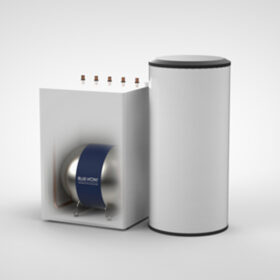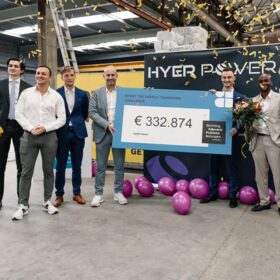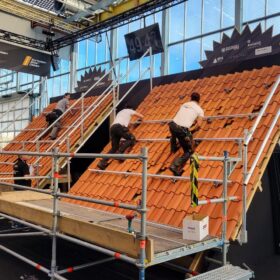MCPV secures €10 million grant for 2.5 GW solar module factory in Spain
Netherlands-based MCPV, a silicon heterojunction PV manufacturer, is planning to build a GW-sized PV panel factory in Tudela, Navarra, Spain.
Dutch homeowners file suit over 2027 phase-out of net metering
Around 137,000 Dutch homeowners have filed a legal claim seeking compensation over the planned cancellation of net metering in 2027.
Copeland invests in thermo-acoustic heat pump developer
The U.S. heating specialist has agreed to invest an unspecified sum in Dutch startup Blueheart Energy, which is developing a 6 kW heat pump that works on acoustic waves and is able to produce both heat and cold air.
Heat pump control strategy for energy communities
Researchers have utilized measured data from a small energy community on a Finnish university campus to simulate its operation under various control strategies. The first control strategy prioritizes the use of heat pumps, while the second prioritizes price. Total costs were reduced by up to 25% with the second option.
Atmoce launches ‘extra’ low-voltage batteries for residential PV
The new batteries have a nominal DC voltage of 26.5 V and a maximum DC voltage of 28.8 V, with the operating AC voltage range being 176-276 V. Their nominal battery capacity is 280 Ah and the rated battery energy is 7 kWh.
Triple Solar unveils PVT-assisted heat pump using waste heat from PV
Triple Solar BV has developed a residential photovoltaic-thermal (PVT) heat pump that uses waste heat from PV modules, eliminating the need for an outdoor unit.
Withthegrid expands real-time renewable energy asset controlling platform
Dutch technology company Withthegrid has expanded the functionality of its flagship Teleport Gateway, supporting real-time control and management for a wider range of renewable energy assets and markets. To enable product and international expansion, it has raised €3.5 million.
Dutch startup developing large plant to generate heat, power from hydrogen
HyER Power, a Dutch hydrogen energy producer, is developing the first large-scale hydrogen power plant in the Netherlands capable of generating both electricity and heat. The plant is set to begin operations by the end of the year.
Key takeaways from Solar Solutions Amsterdam 2025
The Solar Solutions Amsterdam 2025 trade show highlighted the shift in Europe toward smarter, scalable energy systems, showcasing innovations in residential and commercial solar technology as demand for integrated, flexible solutions continues to grow.
Dutch regulator launches probe into home solar feed-in costs, compensation
The Dutch Authority for Consumers and Markets (ACM) says it will study how energy companies are incorporating home solar costs into prices, as feed-in costs have risen 10% over the past month.










